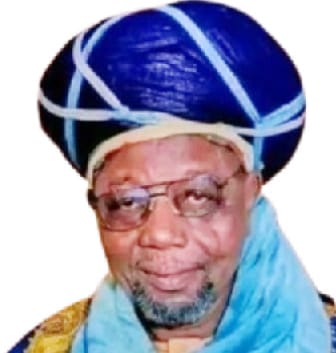The recent killing of Sarkin Gobir, Alhaji Isa Muhammad Bawa, by armed bandits, predominantly identified as Fulanis, has reignited deep-seated historical rivalries stemming from the conquest of the seven Hausa States.
The tragic news surfaced on Wednesday afternoon, revealing that the respected District head had been murdered after being held captive for over a month.
In a distressing viral video released shortly before his death, Sarkin Gobir pleaded for government intervention to secure his release from a hidden location in the forest.
The video depicted him as a victim of brutal treatment by his captors, who appeared to be Fulanis, and included a chilling ultimatum demanding a ransom payment within a day or face execution.
Tragically, it was reported at noon on Wednesday that the Sarkin Gobir had been killed, a fact confirmed by his son, Alhaji Shu’aibu Gwanda Gobir.
Shu’aibu confirmed the incident during an interview with DW Radio.
Shu’aibu, who also holds the traditional title of ‘Magajin Garin Gobir’ (Mayor of Gobir Municipal), disclosed that the bandits had initially requested a ransom of N60 million for his father’s release.
Although the funds were raised just two days prior to the news of his death, the family did not have the opportunity to deliver the ransom.
Gobir, historically known as a city-state in modern-day Nigeria, was founded by the Hausa people in the 11th century and remained under their rule for nearly 700 years.
It is located in the northern part of the ancient Hausaland, encompassing parts of what is now Sokoto State in Nigeria and the southern Niger Republic.
The Gobirawa (Gobir people), as the inhabitants are known, have a rich cultural heritage rooted in Hausa traditions.
Among these is a humorous cultural reference where the Gobirawa regard the Yoruba people as their ‘cousins,’ stemming from a belief in a shared ancestry linked to the daughter of Bawa Jan Gwarzo.
The Fulani jihadist Usman dan Fodio’s invasion of Gobir, led by ruler Yunfa, marked a significant turning point in the region’s history, resulting in the transition of the seven Hausa States to the emirate system, thereby altering the traditional leadership structure.
Yunfa, who ruled from 1801 to 1808, is particularly noted for his contentious relationship with the Islamic reformer Shaikh Usman dan Fodio whose war started in 1804.
The seven principal Hausa states, known as Hausa Bakwai (Biram, Daura, Gobir, Kano, Katsina, Rano, and Zaria), along with their satellite states, were historically independent entities with no central authority, often lacking cohesion in military endeavors.
The legendary narrative of Bayajidda, a prince from Baghdad, is said to have led to the founding of these states, with each of his seven sons establishing their own kingdoms.
Tensions between the Hausa and Fulani have persisted, intensifying since President Muhammadu Buhari’s administration began in 2015.
This rivalry has given rise to various groups, such as Yan Sakai and Fulani youth associations, formed as protective factions within their respective communities.
The escalating conflict has also fostered a culture of banditry, with kidnapping emerging as a prevalent method for raising funds.
In light of these events, a Hausa woman has recently taken to social media, urging her fellow kinsmen to unite against the perceived encroachment by Fulani ideology.
She emphasised the need for solidarity among the Hausa people, regardless of their religious affiliations, to confront the violence affecting their villages.
The tragic death of Sarkin Gobir has, as reported by Elanza News, reopened historical wounds, highlighting the ongoing struggles and complexities of the region’s socio-political landscape.











